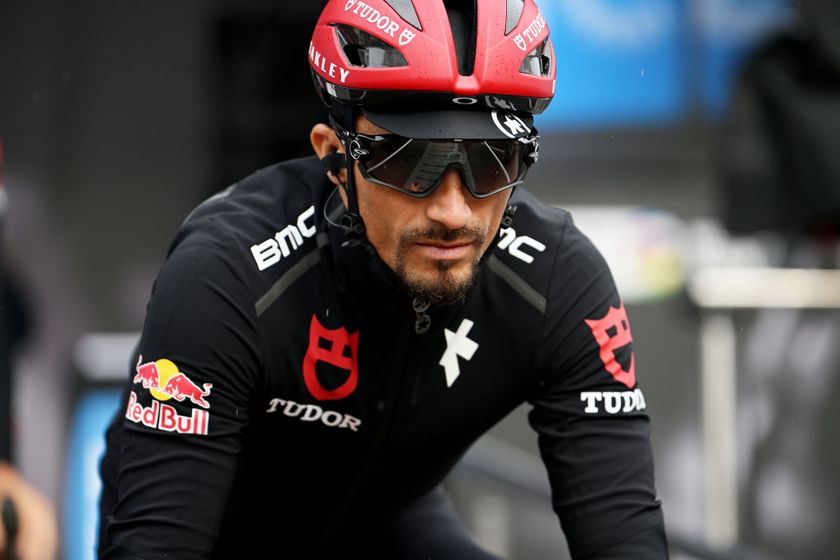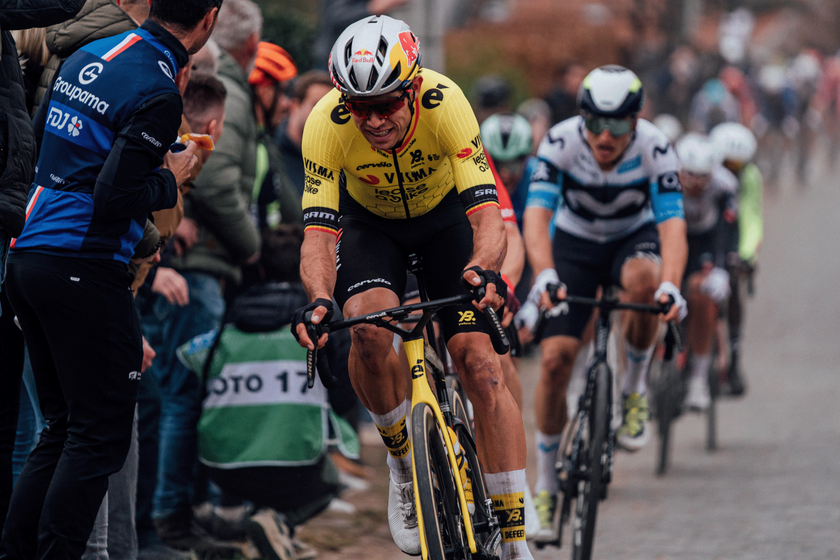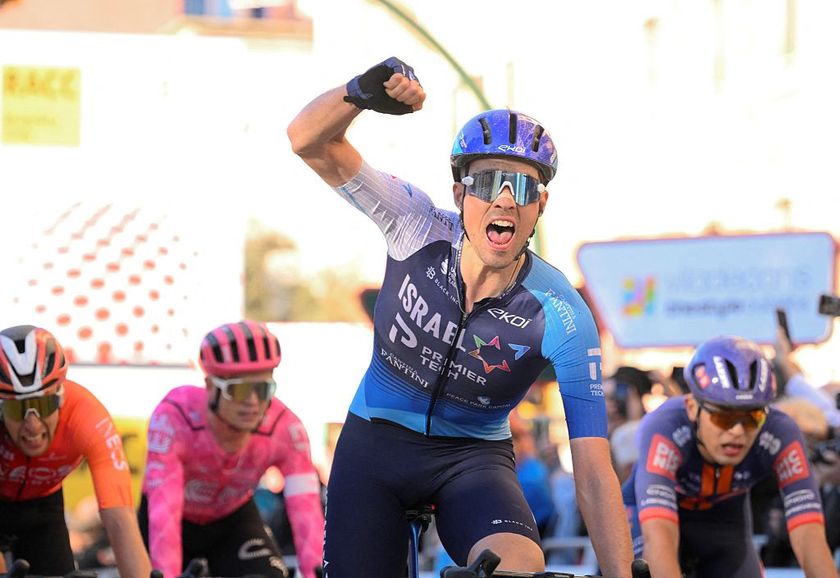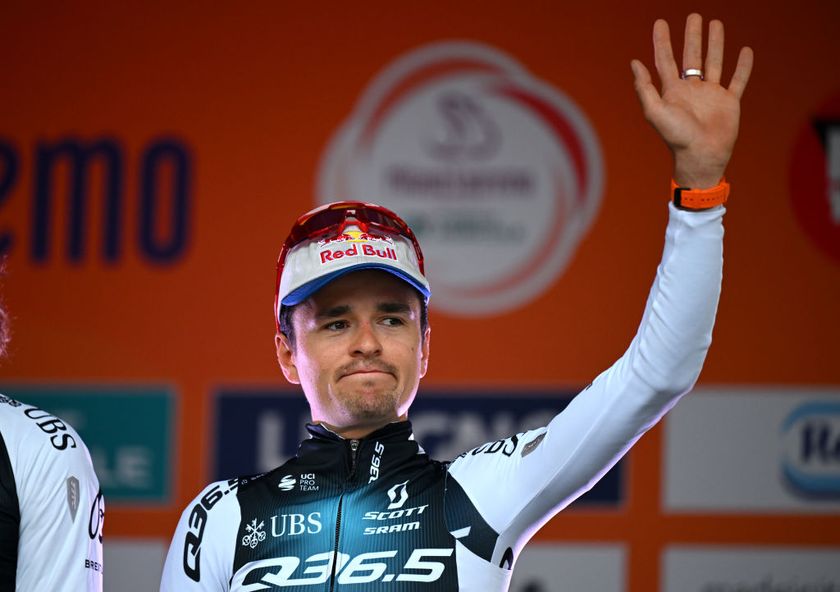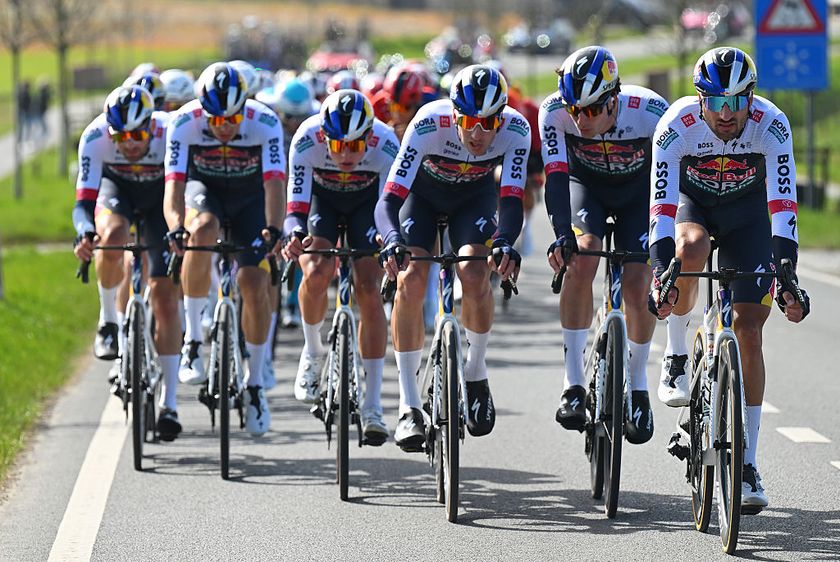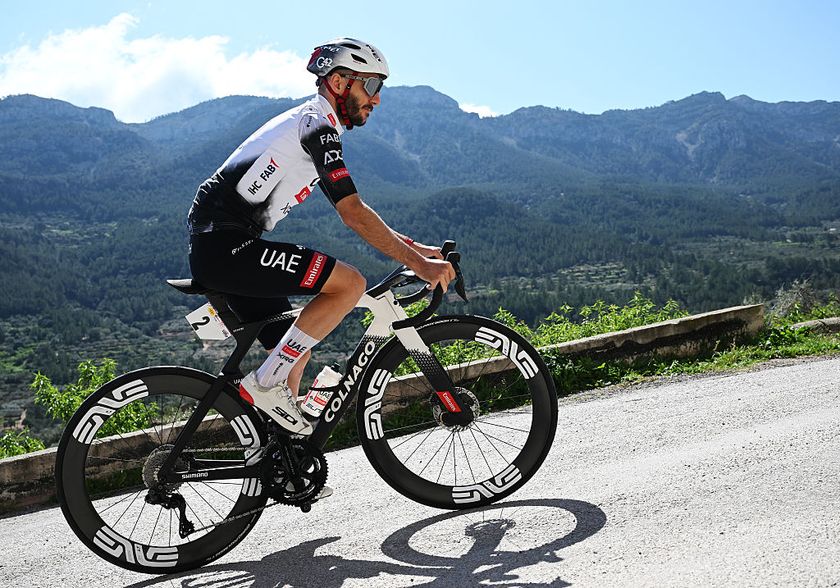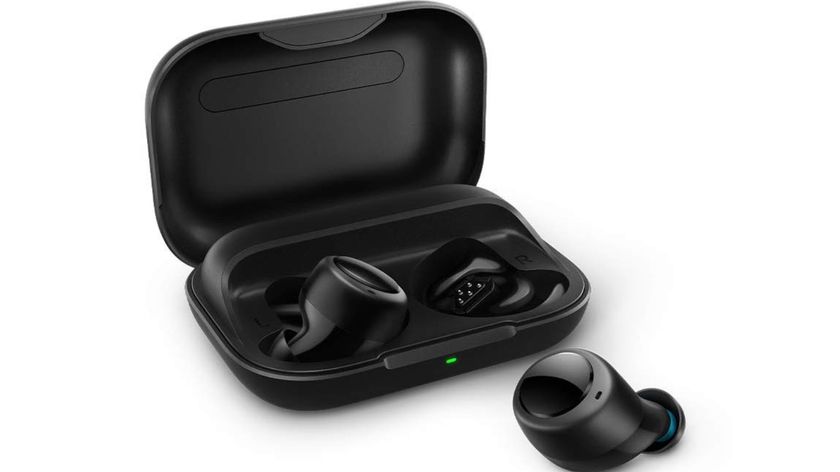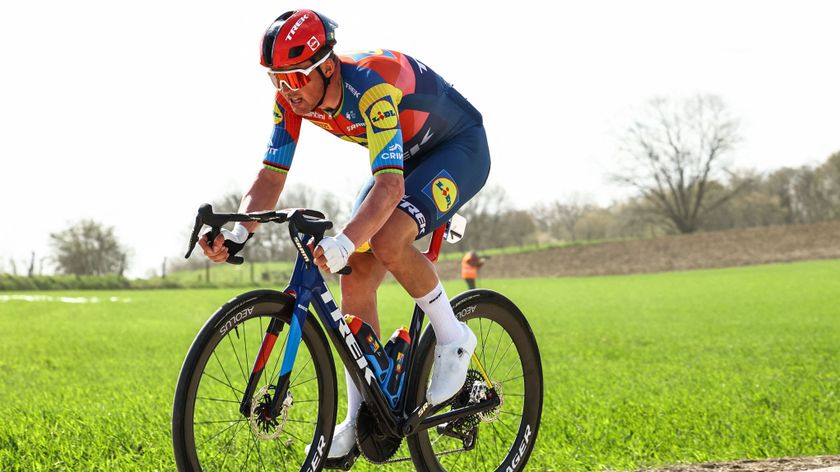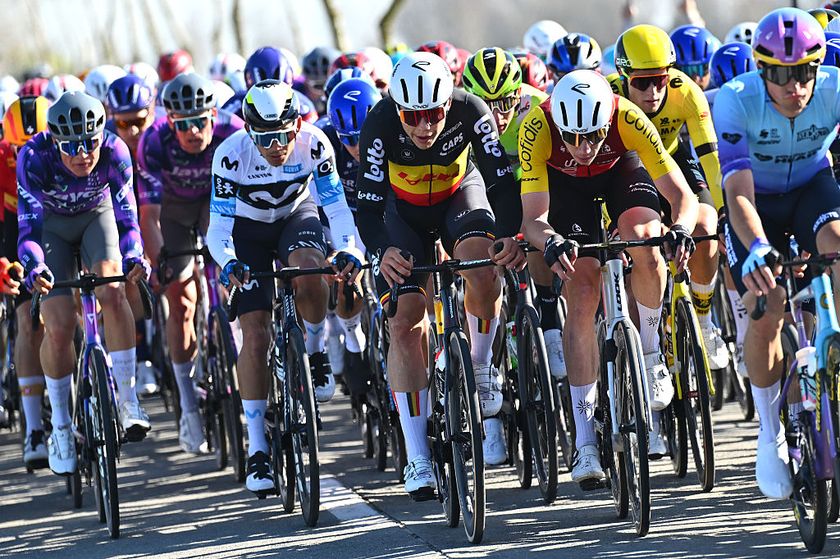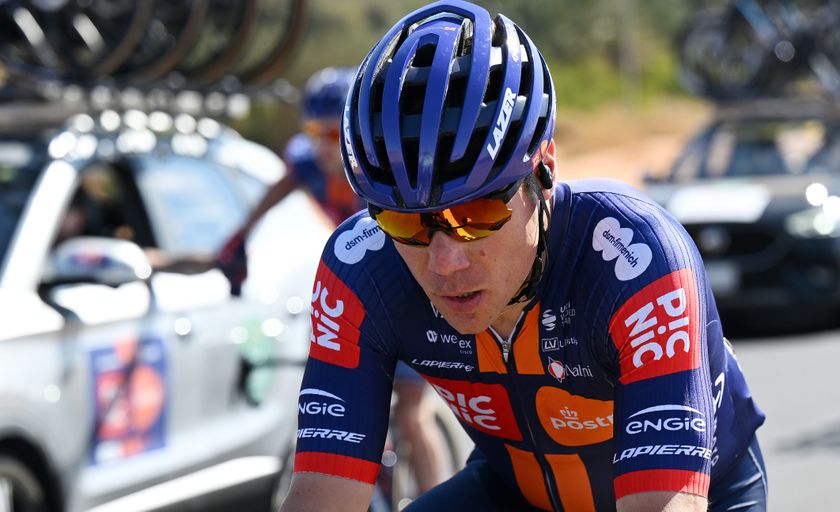UAE medical director recognises Tour de France COVID-19 battle is 'difficult'
Adriano Rotunno says buses being amongst public makes it harder
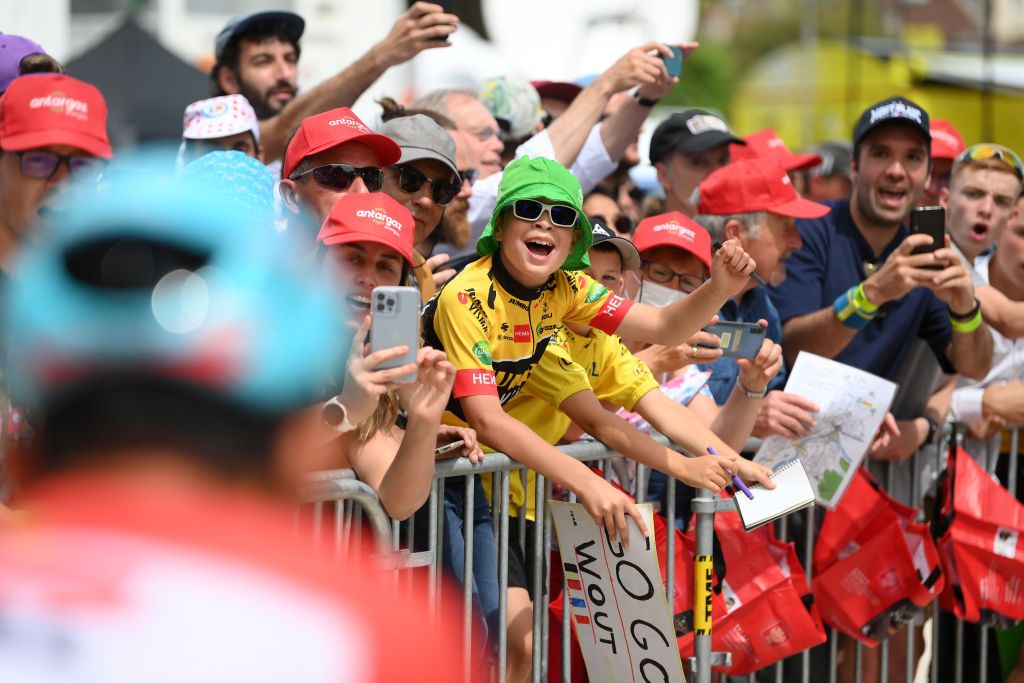
UAE Team Emirates medical staff have recognised that the battle to keep COVID-19 at bay in the 2022 Tour de France is proving to be a tough one, despite the squad being extra-meticulous about their precautions.
However, UAE Team head doctor Adriano Rotunno was critical, too, of the way the Tour de France public has been allowed to draw closer to the team buses than in the previous two pandemic years.
For the first time since 2020, although the team buses are technically closed off in a paddock for all except media and some VIPs at starts, at the finishes they are more accessible than before.
Questioned by a small group of reporters including Cyclingnews at the start of stage 9 about the relative proximity of fans that morning, Rotunno said, "This is an example of how the race organisation is not making it easy for us. We’re all doing our part but it’s difficult to try and mitigate risks with exposure."
He also pointed out that, "It’s difficult in a race like this, where there are no masks being worn [by the public] and we’re amongst the public."
UAE Team Emirates lost one of their support riders on Friday to COVID-19 when Vegard Stake Laengen tested positive and did not start, something which the team recognised as a 'big loss.'
"He complained of some symptoms at midnight the night before and he [had] tested negative that day but the next morning he tested positive," Rotunno said.
Get The Leadout Newsletter
The latest race content, interviews, features, reviews and expert buying guides, direct to your inbox!
He said that the process of testing "depends on the day, because people are working and moving around. Sometimes I'll do half in the morning and the other half in the evening when I get round to it, try and batch them together in one go, but usually in the morning."
Rotunno confirmed that measures already in place in the UAE Team Emirates had been stepped up across the board and on Friday head sports director Joxean Fernández Matxin said riders were now in separate rooms and with separate soigneurs.
Back in 2020, when interviewed by Cyclingnews, UAE performance coordinator Jeroen Swart said he had drawn up "a 40-page protocol to cover every single aspect of what we do. It's evidence-based, and aims to guide the riders and staff in all their activities."
Established one month in advance of the Tour, or earlier, Swart looked at a number of different research documents from other sports, particularly football, and the measures they had taken, as well as introducing his own work and conclusions into the protocols.
"We do everything from the typical measures – the ones that everybody knows about, like masks and hand-sanitising solutions in multiple places in the bus and vehicles – to extra measures, like having an air filtration unit installed in the bus to help eliminate viruses and other contamination," Swart said at the time.
"Then we have other protocols, from how we manage preparation of food, to massages, and pretty much everything else that goes on on a daily basis."
"It was pre-bubble PCRs and testing to create a bubble before everybody came, that’s with our internal testing," Rotunno added.
"Then it’s mask mandates, it’s hand hygiene, social distancing and no autographs or things like that, no socialising outside our bubble. It’s about maintaining distance and hygiene."
As for the tests themselves, a critical line of defence, Rotunno said, "We’re testing everyday or every second day, all staff and all riders. Our primary concern is rider health, we can’t allow a rider to ride a Grand Tour if they’re ill, we’d be risking the peloton, the team, the race and the community.
"For us, it’s important we stick to those protocols and if we have a positive that's the way the dice have fallen for us and we have to deal with that situation."
In terms of how the anti COVID-19 bubbles were working, he explained, "Every team is only allowed to have 30 in the bubble, so that's 8 riders and 22 staff. It’s a laborious process testing everybody all the time but it's what we do, and that’s how we found out we had our first positive rider yesterday [Friday]."
He warned that the process of testing, protocols and checks was the main barrier against the virus wreaking even greater harm.
"The more we can mitigate risk and limit the damage, or the exposure, the better at the end of the day, because there’s nothing to stop Covid from ending our race."
The crunch question, in any case, for UAE Team Emirates is, as one reporter asked, how much of a risk COVID-19 represents for Pogačar.
"As much as anybody else," Rotunno replied. "There are 200 riders in as much at risk, obviously for us there’s more on the line but unfortunately a virus is a virus and we can try to limit it as much as we can. But it’s very difficult."
Alasdair Fotheringham has been reporting on cycling since 1991. He has covered every Tour de France since 1992 bar one, as well as numerous other bike races of all shapes and sizes, ranging from the Olympic Games in 2008 to the now sadly defunct Subida a Urkiola hill climb in Spain. As well as working for Cyclingnews, he has also written for The Independent, The Guardian, ProCycling, The Express and Reuters.

